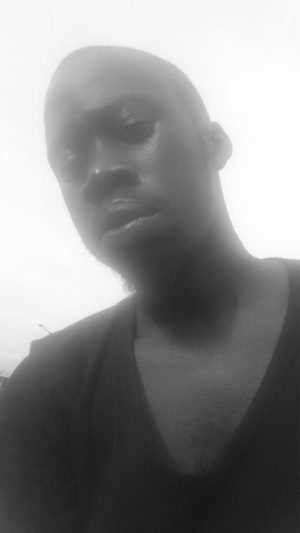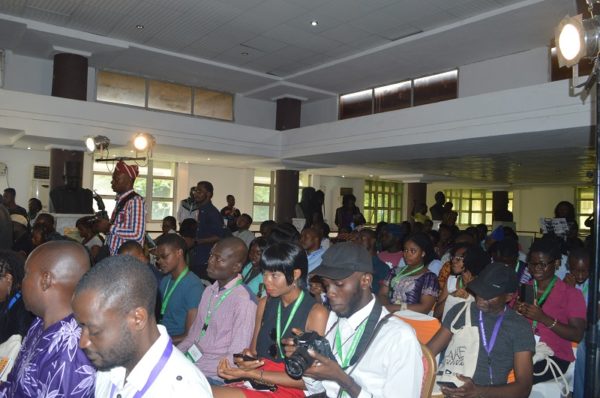Abeokuta, our venue for Ake Arts and Book Festival, is a town founded by defeated warriors who had found succor from invaders beneath its rocks. Maybe that was why I felt at ease from the moment I arrived Kuto roundabout. Maybe it was the reassuring manner of the first volunteer who attended to me. She wore her braids over her head in a large bun resembling Olumo rock itself. Maybe it was NoViolet Bulawayo exchanging ideas on dialogue as if we were peers, Helon Habila’s quiet but frequent nods of approval, or Sarah Ladipo Manyika’s reckless passion. It could have been any or maybe even all of the above. But at the end of the first day, I had forgotten I was a defeated warrior.
Over the next four days, I met many like minds. We would sit in on intellectual conversations through the days and ravage ofada rice with alcohol through the evenings, like I assumed the founding warriors of Abeokuta did. During these four days, every book chat and panel discussion was a hit; back to back, iyalaya aneebodee! Our idols, formerly inaccessible, became humanized before us and our phone cameras, as Teju Cole and Tendai Huchu would agree. And mere mortals ascended to deity status, as Panashe Chigumadzi and Chinelo Okparanta would also agree. More importantly, in our common love for all things books, we all saw ourselves as worthy warriors of the same cause; none greater than the other.
I struggled to understand how I had come into Abeokuta feeling defeated and left possessing the aura of the greatest warrior that ever lived. It was similar to what I felt, albeit a long time ago, when I used to create bewildering literature while reading through acceptance mails, when I first possessed my greatness. And I drifted further, wondering how the great warrior in me first died.
As always, I let literature teach me, and I discovered that great warriors often died tragic deaths. Regardless of the place — whether as north as Beowulf’s Scandinavia or as south as Kurunmi’s Ijaiye — and regardless of the time — whether as ancient as Julius Caesar’s era of bloody conquests or as recent as Okonkwo’s era of ideological warfare — greatness was never impermeable to the blows of tragedy. Tales of great warriors greatly differ, but generally, we could simplify things and assume that great warriors often get lost in the proverbial sauce of their glory and fail to notice the rise of other great beings around them.
Literature is like war. The only way to greatness is by creating stories that would defy time. African writers, the great warriors, have legends told of our incursions into the valiantly guarded gates of world literature since the middle of the last century and our heroic exploits in the battles against imperialist agenda in African thought and culture all through the next decades. Our arrows of fiction classics from our quiver full of literary genres have trespassed every border. Literature is also like war in the sense that victory is a result of constant evolution of thought. If you are not aware of the evolution going on around you, it would be difficult to evolve with it. If you fail to evolve with it, you would be left behind to die a tragic death.
The great warriors I met at Abeokuta were at the forefront of evolution. They were aware of the world around them; rich in knowledge and opinion. They were aware of the other great beings rising around them in every part of the continent and followed each other’s stories; they were constantly learning and so constantly evolving. I quickly realized the great warrior in me had died because I had failed to do the same. The world had not sung ballads of my greatness just yet, but I had gotten lost in the sauce of my initial glory. I was trying to quickly replicate this glory by doing too much writing and doing too little learning; learning of knowledge and opinion, learning from the evolution around me.
Through the festival, we discussed knowledge and opinion on all sorts of sexuality and on the throes of prison, on the wide influences of speculative fiction and the broad spectrum of horror, on the war crimes in Chad and the strokes of magic being created by the new generation of culture curators in Zimbabwe. Falana sang to us in Spanish and the language of the Cajun and Brymo reminded us that even the dearest of pricks no get shoulder. And if I ruled the world tomorrow, my first decree would be to command a worldwide viewing of Marquerite Abouet’s Aya de Yopougon, so the world would laugh and learn as I did.
The great warrior, Andre Gide, wrote, “If one does not absorb everything, one loses oneself completely. The mind must be greater than the world and contain it.” Ake Festival is where the literati came to absorb everything great in the world and contain it. I am a witness. But then again I might be mistaken in my analysis; it might have nothing to do with evolution of thought. Maybe it was the beautiful volunteer who wore Olumo rock on her head that made the festival worthwhile.
************
About the Author:
 Nnamdi Ehirim is a frequent reader and occasion writer. His lofty achievements are still buffering, but meanwhile, his short fiction can be found on Afreada.com.
Nnamdi Ehirim is a frequent reader and occasion writer. His lofty achievements are still buffering, but meanwhile, his short fiction can be found on Afreada.com.










Fatima November 29, 2016 00:48
Hail the conquering hero. Akè was all this and so much more.